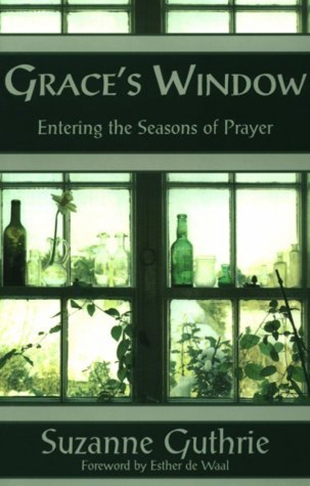Hospital Corridor
Remember that you are dust, and to dust you shall return.
(Liturgy of Ash Wednesday)
"No light, but a red glow fills the sky in the east far away beyond the flightline as I drive toward the military base hospital. The giant cargo engines wail lamentations from one horizon to another at a deafening pitch. When I get out of the car the wind stings my ears. I put a quarter in a machine near the hospital door and take a newspaper as a hold on the world, as an amusement, an escape.
"I wait in line. My blood is drawn into tubes with colored stoppers. I drink a bottle of glucose and fight nausea for two hours, trying to lose myself in the newspaper. Then my blood will be drawn again and I can go out into the daylight, go to church and be among friends, receive ashes upon my head and impose ashes upon my friends in order to remind one another we are but dust. The sanctuary is a place of love and comfort. This hospital hallway with the fluorescent lights overhead is drafty and impersonal; here, I do not need to be reminded that I am but dust.
"The sounds and smells of the hospital corridor almost always evoke the deep and timeless prayer of vigils spent by the bedsides of my children. The smell of disinfectant and betadine, the too-bright lights, the loud conversations in hallways bring me to the edge of prayer, where the separation between life and death seems arbitrary and love overwhelming.
"I feel again my face against the cool of the green wall of the operating room surrounded by empty gurneys. Behind the swinging doors doctors cut open my daughter's throat and put in a tube so that she can breathe. I know by heart the feel of the sticky vinyl chair, the sound of shouts, the beeps and clicks of heart monitor machines in the Intensive Care Unit where, for a week of nights and days, her frail little body fights off disease with risky, too-vigorous medicines. Jesus, she says, watches her from the folds of the plastic curtain.
"I am by Trevor's bedside when he is not yet two years old, stroking his head, lulling him to an exhausted sleep only for him to scream himself awake in pain when his muscles contract in spasm around his broken leg each time he relaxes.
"I relive the vigil from a rocking chair in a hidden corner of the hospital that my infant son Jack and I share with a monstrously deformed vegetable child. My newborn baby has fallen out of a basket and I do not know if he will recover his alertness. I lift again my son's grossly swollen head to nurse him at my breast. His dull eyes do not meet mine. I am utterly alone except for the older child in his cage-like bed, watching us.
"I am holding a sixteen-month-old Jack down upon the debriding table in the burn ward, singing to him while the doctors painstakingly pull off the skin on his hands and feet twice a day. He was badly burned by an overheated Texas floor furnace and to this day Jack's scars shock any uninitiated priest giving communion into his outstretched hands. After eleven years his voice is still hoarse from nodules on his larynx caused by weeks of screaming in pain. He will still have to have an operation on his feet.
"I guarded over my children's suffering through these nights and days. Maternal love could do nothing to take the pain away, and so I sang their names over and over and over.
"Trevor and Jack and Grace did survive those traumas and I thankfully attributed their healing to God. But my neighbor's child of Grace's age did not survive a similar illness, and when Jack and I left the corner room with his head its normal shape again, we left the monstrous child behind, still tied to his crib. I know that the prayers of those other parents and children were not less worthy than mine. I am not ungrateful, but I can't forget the children who were left behind and I do not know what my prayer or my love or my ministry would be like had I not carried my children out of the hospital corridors alive and whole. Yet I sensed at the time that God was present in death as well as in life. It was not a sense of comfort or assurance that I experienced, but a love that did not depend on life or death.
"A hospital corridor can be a mysterious place, a terrible and holy threshold upon the boundary of the soul. Here you will find an opening through which you might apprehend and embrace unexperienced aspects of God. Uprooted from your ordinary days, the hospital confounds the peaceful soul with the realization that the God of daily living is also the God of sudden dying. The God of the comforting parish sanctuary is also the God of the Intensive Care Unit. The God of beeswax candle and incense is the God of vomit and pus; the God of white linen and embroidered chasuble is the God of plastic curtain and sweaty sheet; the God of organ and flute is the God of squeaky gurney wheels and crying children; the God of deep port wine and delicately embossed communion bread is the God of infected blood and wounded flesh.
"The God of all those corridor smells and sights and sounds is also the God of profound silence. When despair has obliterated ordinary prayer, when the psalms fail and all words are stupid and meaningless, the mantle of loneliness surrounding me becomes a mantle of dark and wordless love. This darkness reveals the paradox of prayer: in the absence of God, all there is, is God."
